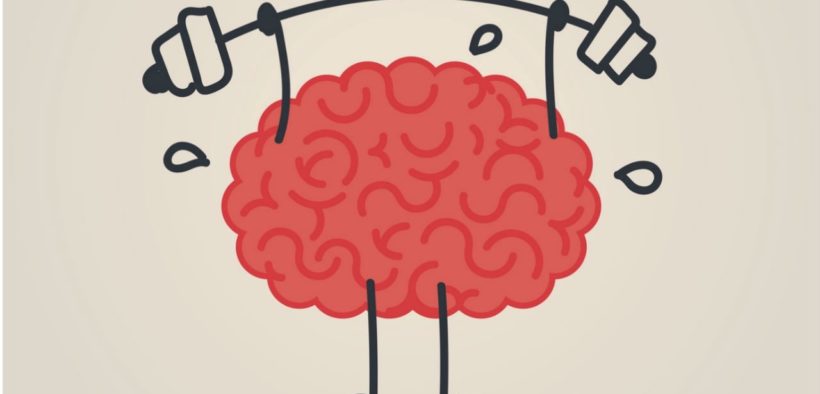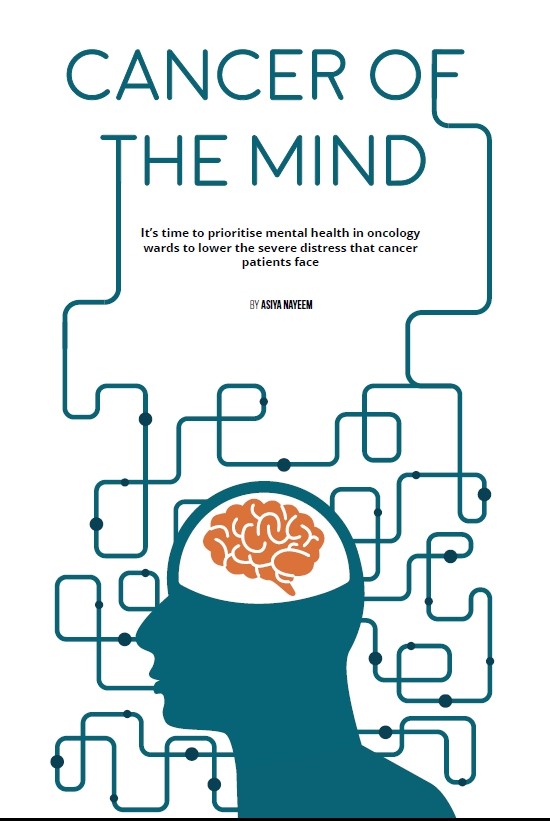Cancer Of The Mind

Mental health is slowly becoming a priority in today’s world. There is more conversation about mental health issues and less stigma about seeking therapy. We are aware of the adverse effects that an unhealthy work environment or a poor diet can have on your mental health. We understand how exercising and taking care of our body can decrease stress and lift your energy. But there’s more work to be done. The mental health space has one crucial problem.

Cancer wards are far from making psychological care a primary concern. When a cancer diagnosis is made, doctors are racing against time to plan and start the cancer treatment, scheduling chemotherapy sessions and arranging tests. But what seems to be missing in this conversation is the psychological treatment that the patient needs. The fact is that one in three people with cancer will experience a mental health problem such as depression or anxiety disorders before, during or after treatment.
Mental Health On the Back
Burner Just hearing about this diagnosis is a deep cut for a person. Feelings of depression, anxiety and fear are common responses when receiving this troubling news. During cancer treatment, patients experience side effects brought on by their chemo sessions. They are fatigued, lack an appetite, and encounter fluctuating moods, to name a few. These side effects put more pressure on the patients and their psyche. According to The National Cancer Institute, 25 per cent of cancer survivors experience symptoms of depression and up to 45 per cent experience anxiety. There’s no doubt that the mental distress of dealing with a cancer diagnosis and the treatment is severe. But many of these patients don’t receive the mental health treatment that they require. The Delhi-based Mental Health Foundation interviewed cancer patients to understand how psychological health care factored into their cancer treatment. They found that ’66 per cent of people were not even informed about the potential mental health problems that could arise at the end of treatment.’
Creating a Holistic Treatment
The path to recovery for a cancer patient has one alarming pothole that needs immediate attention. How can we make this change? Awareness, execution and research are top priorities for oncologists to ensure that patients are cured physically and mentally at the end of their treatment. To start, doctors need to inform and explain the different ways the diagnosis and the cancer treatment can affect the patient mentally. Having an open conversation and providing them with information is the first step. The Mental Health Foundation found that 51 per cent of patients insisted on receiving better communication from their service providers.
When a patient starts treatment, it is recommended that they seek regular counselling sessions. These sessions can help them manage the pain and the side effects of treatment as well as help them process their mixed emotions and deal with this life-changing event. Patients can also attend peer support groups where they get to interact with others diagnosed with cancer and receive support. These groups give a positive perspective and remind patients that they are not alone in their fight.
There is not enough research on the effects of cancer on the mental health of a patient. There needs to be more urgency in understanding and exploring this correlation. Moreover, a typical treatment plan is designed with psychological care as an afterthought. This needs to be changed, immediately. Oncologists and mental health care providers need to work together to find ways to make psychological care a primary aspect of the cancer treatment process. With time, effort and research, it’s possible to ensure that cancer patients receive quality cancer treatment as well as wholesome mental health care.
















